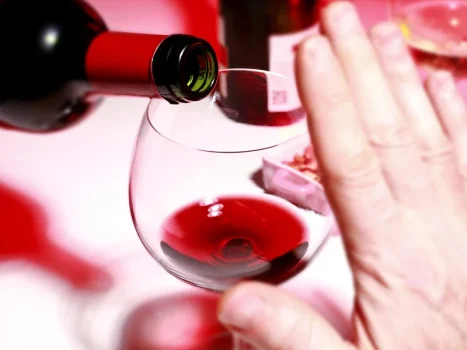
In the absence of triggers, or cues, cravings are on a pathway to extinction soon after quitting. But some triggers can’t be avoided, and, further, the human brain, with its magnificent powers of association and thinking, can generate its own. Studies show that craving for alcohol peaks at 60 days of abstinence. • Connection—being in touch with others who believe in and support recovery, and actively seeking help from others who have experienced similar difficulties. Embarking on a journey toward recovery—whether from addiction, injury, or illness—presents a unique set of challenges.
Exploratory Study

Remember, asking for help with your emotional healing is a sign of strength, and it’s an important step in your journey to a healthier and happier life. No matter the substance, you might feel irritable, anxious, or even downhearted during detox. But remember, these https://ecosoberhouse.com/ feelings are a sign that your body is healing and making a positive change. Having medical professionals by your side during this time is crucial. They can monitor your health and provide support to make the detox process as safe and manageable as possible.
What Is Borderline Personality Disorder?
They educated themselves about addiction and how to support Mark’s recovery. Through their unwavering support, Mark was able to rebuild his life and maintain his sobriety. Today, Sarah and her family continue to be his pillars of strength, and their roles in his early recovery were instrumental in helping him achieve and sustain his healing journey. Regularly evaluate how your routine is working and make changes accordingly. Prioritize self-care, therapy, and personal growth to cultivate a routine that supports your recovery journey and helps you thrive. As you embark on your journey toward early recovery from addiction, it is crucial to have a toolbox filled with effective strategies for the initial phases of healing.
Strategies to Resist Temptations and Cravings
- There will be highs and lows and one moment may not feel anything like the next.
- Regularly attend court appearances and maintain open communication with your attorney to guarantee compliance with legal obligations and to facilitate a smoother recovery process.
- Research and clinical experience have identified a number of factors that promote recovery.
- Consistent communication becomes the foundation of these efforts.
- Here at Chapel Hill Detox, our years of dedication and experience to finding the best roadmap toward your full recovery has placed us where we are today.
If you or a loved one is currently in the early stages of addiction recovery, it’s essential to reach out for help and support. The Robert Alexander Center for Recovery is here to assist you on your path to recovery. reframing holidays in early recovery With our experienced team and specialized programs, you can access the guidance and resources necessary for your unique journey. Establishing a daily routine helps bring structure and stability to your life.

Take the First Step Towards a Healthier Life
Another is reorienting the brain circuitry of desire—finding or rediscovering a passion or pursuit that gives meaning to life and furnishes personal goals that are capable of supplanting the desire for drugs. A third is establishing and maintaining a strong sense of connection to others; support helps people stay on track, and it helps retune the neural circuits of desire and goal-pursuit. Learning new coping skills for dealing with unpleasant feelings is another pillar of recovery. Medical detox is a necessary first step on every journey of addiction recovery, and at Chapel Hill Detox we are dedicated to helping each of our clients start off that journey on the right foot.

Establishing healthy routines can be the cornerstone of a successful early recovery, offering a structured path to regain control and foster long-term well-being. Imagine waking up each day with a clear purpose, beginning with morning rituals that set a positive tone for the hours ahead. This might include a few moments of mindfulness meditation, followed by a nutritious breakfast that fuels both body and mind. These simple actions can anchor you, providing stability in the often turbulent waters of recovery. Recognizing personal triggers is a pivotal step in managing cravings and ensuring a successful early recovery journey. Through personal reflection and heightened emotional awareness, individuals can identify the specific situations, people, or emotions that may ignite cravings.

An Inability “to Make Recovery the Priority”
- When Mark decided to seek help for his addiction, Sarah and their parents provided emotional support, attended family therapy sessions, and participated in support groups.
- Participant 1 expressed the same sentiment in their interview.Before Participant 1’s last treatment episode, they constantly participatedin gardening outdoors and occasionally indoors as well.
- It is important to remember that your sobriety is contingent on you remaining abstinent and the things that you do on a daily basis to help achieve this.
- However, coping with cravings when you intend to never use drugs and alcohol again is a next-level challenge because you often experience a craving as a sort of command that’s very hard to refuse.
It may be that your partner or a close family member is a heavy drinker or user. You may have expectations that now you are sober and clean that they too will take steps to change their ways and come into recovery. Remember that no one could have influenced you coming into recovery until you were well and truly ready.
In the early days of sobriety, recognizing personal triggers is the first essential step toward managing cravings. Developing practical coping strategies and leaning on a support network is crucial for finding resilience in moments of vulnerability. Each day highlights the power of awareness and community in overcoming the grip of addiction. Upon receipt of signed written consent, researchers administered a demographicsurvey and DOQ.

This simple yet potent habit offers a space for self-reflection and acts as a daily record of your progress and setbacks. Reviewing these entries reveals patterns that can inform more effective communication strategies with your support network. In the early recovery journey, prioritizing self-care becomes a lifeline, harmonizing mental health practices and physical wellness activities.
What to Expect in the Early Stages of Recovery
To set up a confidential consultation with one of our staff, contact us online today. Setting and achieving goals is a powerful motivator in early recovery. These goals can be as simple as attending support group meetings, maintaining regular therapy sessions, or working towards a new career path. Accomplishing your goals gives you a sense of accomplishment and purpose. It’s crucial to connect with a therapist, counselor, or addiction specialist who can provide tailored treatment plans, individual therapy, and strategies to address co-occurring disorders. The three P’s of recovery are patience, persistence, and positivity.
